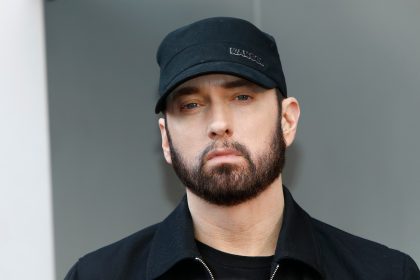The life and Times of
Taraji P. Henson
|
On Dec. 11, 2008, the nominations for the 66th Annual Golden Globe Awards were announced. While there was much talk surrounding the nominations, there was also a considerable amount of chatter about one person in particular who didn’t receive a nomination. As the names for Best Supporting Actress were unveiled one by one, it was almost a forgone conclusion that one name would be mentioned in that group — Taraji P. Henson. With her stellar turn in the Brad Pitt-led The Curious Case of Benjamin Button, Henson has been garnering the same type of buzz that followed Jennifer Hudson on her way to Oscar glory. But the buzz this time around would fail to materialize into anything substantive, and Henson’s loyal supporters were left to cry bloody murder. While the average person would certainly be disappointed by such a glaring snub, Henson barely noticed. With her, it was never about the accolades anyway — just the work. That’s what satisfies her and fuels her continued push toward greatness. Ro: There has been so much talk in media circles about your upcoming movie. Why don’t you take this time to fill the rolling out readers in on what’s about to take place.
Ro: What lessons did you learn from the film? Henson: It just really put life and death in perspective for me. I lost my father about a year before we started filming the movie. Sometimes you don’t understand things, and you look back on them to try to understand why things happened. But there is a beautiful saying in the movie that says, ‘You have to live life, but the only way that you can understand it is by looking at it backwards.’ That’s where you get all of the wisdom as you get older in life, because you’ve lived life, you’ve fallen down and scraped your knee, and the wounds have healed. After that, you don’t repeat the same mistakes, because you know that if you do it again the outcome won’t go well. So for me, the film just reinforced that we are all just passing through. No one is going to stay on this Earth forever, and while you’re here, you just have to make the best possible impact while you are here. Ro: Much of the film was shot in New Orleans following Hurricane Katrina. How was that experience for you?
Ro: You shot the film over two years ago. Were you anticipating the release and all that could possibly come as a result of its release? Henson: My feet are always planted in the earth, and I never get ahead of myself. I knew that there was going to be a lot of anticipation when we began. There was actually a lot of buzz around this movie before we even shot it — there was always this great expectation surrounding it. In the meantime, though, I didn’t think about the film. I just stayed busy, and I still am. Ro: How have you grown as a professional during your years in Hollywood? Henson: I’m just constantly growing, and allowing myself to grow. I’m definitely more comfortable in the interview process. I understand that it’s always a job — even on the red carpet. Those were things that I didn’t understand early on. I knew the work — how to hit my marks, say the line, and give you some emotion, but there was so much more that I needed to learn outside of making a film. You have to promote the film and do all of this other stuff outside of it. It’s really almost like running for president, because the work never stops. Ro: Have you experienced conflict between your personal and professional obligations? Henson: I don’t think there has ever been a problem with my personal and professional life conflicting. The only time that it poses a conflict for me is when it comes between something that I have to do for my son. It all works out, though. I’m always at every game; I’m always at every important thing that is going on at his school, so the angels are definitely on my side. As far as people trying to get into my personal life, I guess the only time that it might happen is if I’m in another state, and someone might recognize me. But in L.A., the paparazzi are not thinking about me. I live a very normal life. I don’t have an assistant; I take my son to school every day, and pick him up unless I have to work. Ro: Do you think that things can change with the release of this movie, making it difficult for you to live a normal life? Henson: I mean there’s a possibility of it changing all the time, either after this movie, or the next movie. I really don’t think about that. I just live one day at a time. Ro: Do you enjoy watching yourself on-screen? Henson: I am my worst critic. I hate the way that I sound, and I don’t like the way I look sometimes. I’m always getting on myself like ‘why did you do that? You could have done that so much better.’ So it’s always really odd when someone comes up to me and tells me that I blew them away. It’s just really hard for me to watch myself, so I just do the work and walk away. I just know that I love what I do, and I love the impact that I’m making on my journey in life. And to be able to impact people with my craft — that’s what I’ve been sent here to do. Ro: As you reflect on your career, is there a moment that holds special meaning?
|










